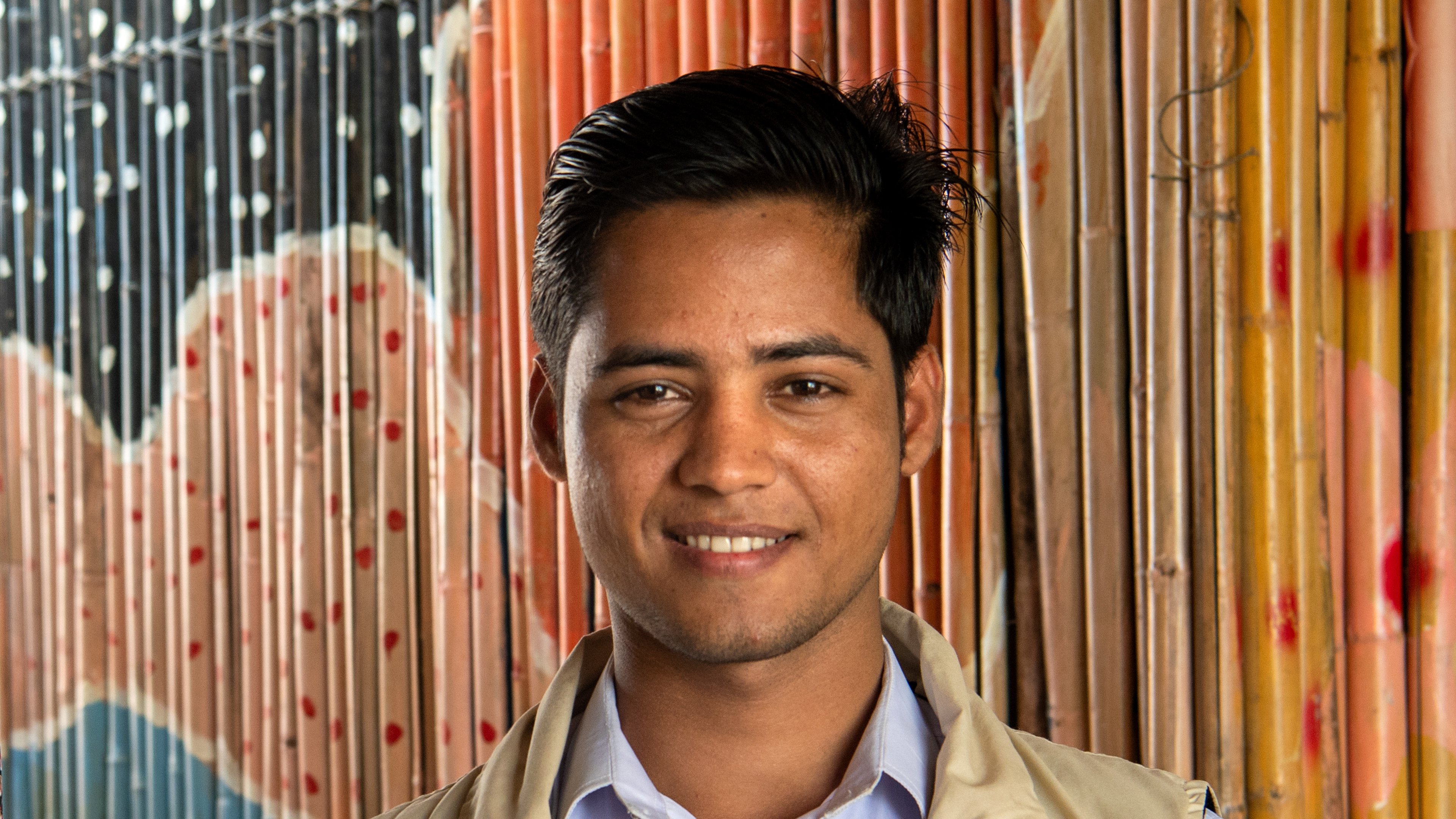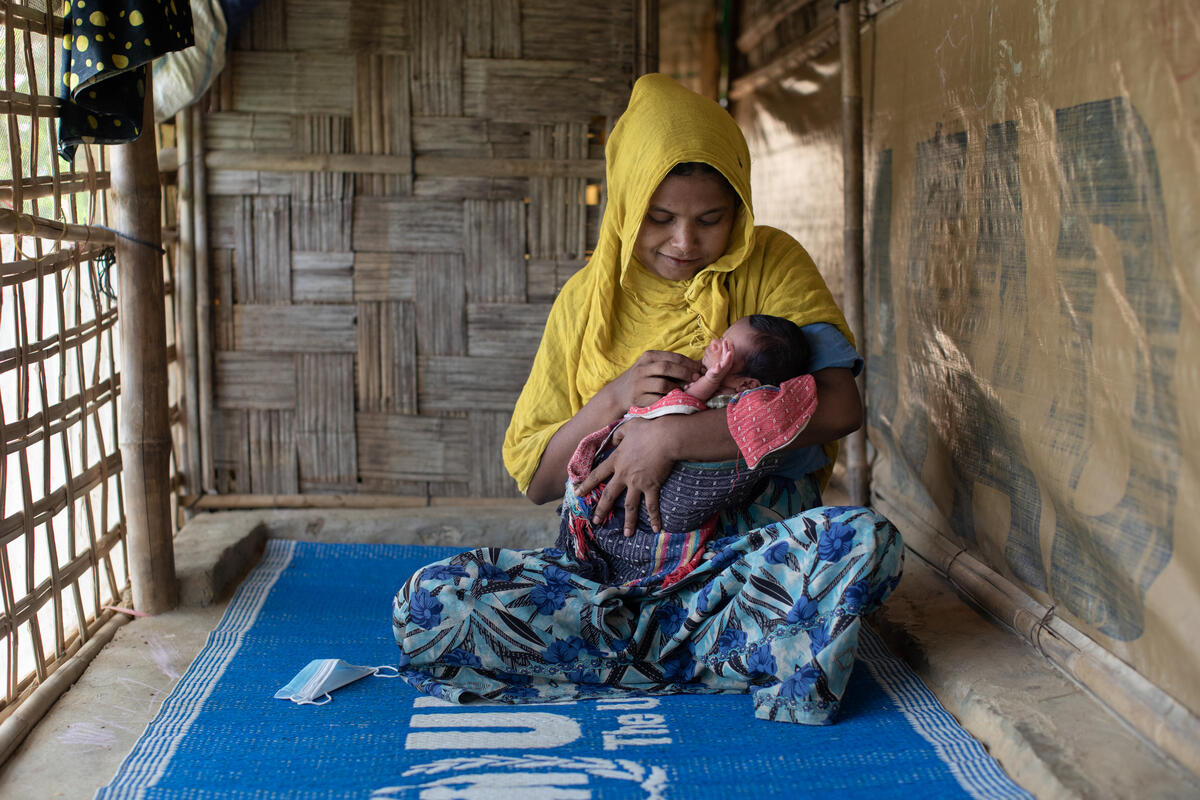Angelina Jolie voices support for Myanmar refugees in northern Thailand camps
Angelina Jolie voices support for Myanmar refugees in northern Thailand camps
BAN MAI NAI SOI REFUGEE CAMP, Thailand, February 5 (UNHCR) - UNHCR Goodwill Ambassador Angelina Jolie has called on the Thai government to grant Myanmar refugees in northern Thailand greater freedom of movement, after spending a day listening to refugees tell of the difficulties they have faced in two decades of living in closed camps.
"I was saddened to meet a 21-year-old woman who was born in a refugee camp, who has never even been out of the camp and is now raising her own child in a camp," Jolie said after her visit Wednesday to Ban Mai Nai Soi camp, home to 18,111 mainly Karenni registered refugees, just three kms from the Myanmar border, near Mae Hong Son.
"With no foreseeable chance that these refugees will soon be able to return to Burma (Myanmar), we must find some way to help them work and become self reliant," she said.
The 111,000 registered refugees who live in nine camps in northern Thailand along the Thai-Myanmar border are not allowed to venture outside the camps to work or receive higher education.
In a thatched two-room house on stilts, Jolie sat down on the floor and chatted with refugee Ma Pai, a 44-year-old minority ethnic Kayan woman who has applied for resettlement to the United States.
At a boarding school for orphans and children separated from their parents, Jolie listened attentively as two teenage girls - sent across the border to the refugee camp by their parents for education - told of their fears that they might have to go back to Myanmar when they finish their schooling.
"I hope we can work with the Thai authorities to speed up the government admissions process and that you will not be forced to go back to Burma if danger remains," Jolie said.
The Thai government's Provincial Admissions Board, the only body that can grant refugee status to people fleeing fighting or persecution in Myanmar, has yet to process some 5,000 people who arrived in Mae Hong Son province in 2006 and 2007, the last time there was significant fighting in Kayah State just across the border. Throughout last year, people continued to trickle into Ban Mai Nai Soi and three other camps in the province, mostly fleeing forced labour and other human rights abuses.
One 26-year-old woman, Pan Sein, told Jolie she fled her village in Kayah State last November, and took a circuitous, hazardous journey on foot that finally brought her to the camp at the beginning of January.
"Weren't you scared to leave your parents and come on your own?" Jolie asked.
"Yes, I was scared," Pan Sein replied. "It was dangerous to flee, but even more dangerous to stay in my village."
Jolie's visit came at a time of worldwide attention to the large numbers of Rohingya migrants fleeing Myanmar's northern Rakhine state in rickety boats, and just after UNHCR gained access to 78 Rohingya boat people in detention in Ranong in southern Thailand.
"Visiting Ban Mai Nai Soi and seeing how hospitable Thailand has been to 111,000 mostly Karen and Karenni refugees over the years makes me hope that Thailand will be just as generous to the Rohingya refugees who are now arriving on their shores," Jolie said.
"I also hope the Rohingya situation stabilizes and their life in Myanmar improves so the people do not feel the desperate need to flee, especially considering how dangerous their journey has become," she added. "As with all people, they deserve to have their human rights respected."
By Kitty McKinsey in Ban Mai Nai Soi Camp, Thailand








